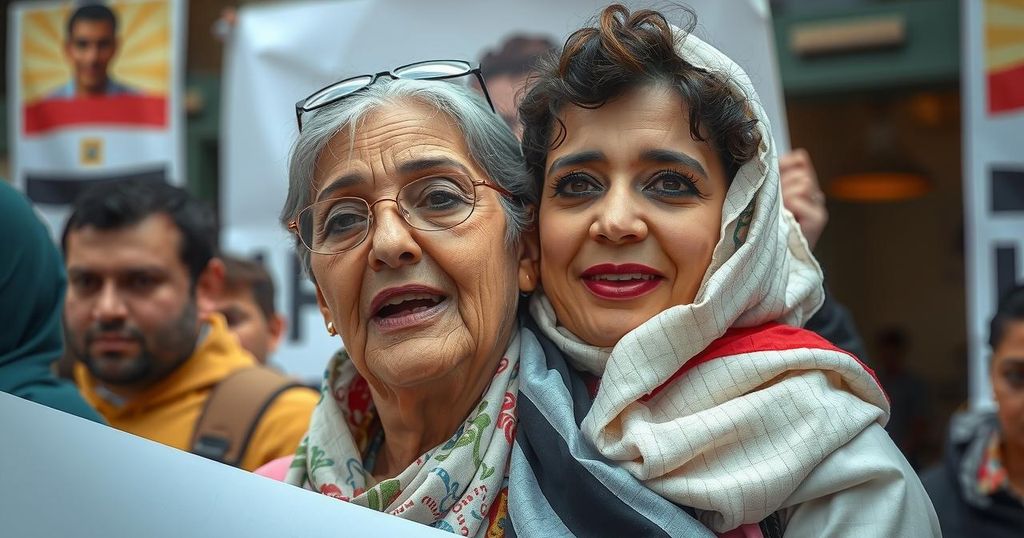Mother on Hunger Strike Pressures UK Government to Free Jailed Son in Egypt
Laila Soueif is on a 74-day hunger strike, urging the UK government to secure the release of her son, Alaa Abd El-Fattah, a pro-democracy activist imprisoned in Egypt. The UK Foreign Office maintains communication on his case, yet progress remains stalled as Soueif intensifies her protest, emphasizing the critical nature of the situation. Advocacy groups, including Amnesty International, call for increased diplomatic pressure to address the unjust treatment and detention of Abd El-Fattah.
Alaa Abd El-Fattah, a British-Egyptian pro-democracy advocate, has been incarcerated in Egypt since September 2019. In December 2021, he was sentenced to five years for allegedly disseminating false information. His mother, Laila Soueif, aged 68, has been on a hunger strike for 74 days, demanding action from Sir Keir Starmer and the UK government to secure her son’s release. She has escalated her protests to include daily visits to the Foreign Office in London and delivering notes detailing her health to the government, emphasizing the urgency of her situation.
The situation remains precarious as Laila Soueif’s health deteriorates while she awaits a response. Recent communications from the UK Foreign Office indicate that the government continues to press for Abd El-Fattah’s release, although no significant progress has been reported since the Prime Minister’s last engagement with Egyptian President Abdel Fattah El-Sisi. Soueif asserts that it is crucial for UK officials to advocate for her son fervently. She articulated her frustration, urging that Abd El-Fattah, a British citizen, should not be imprisoned in Egypt but rather reunited with his son in the UK.
Amnesty International has condemned the UK government’s perceived inaction and called for prioritizing diplomatic efforts to secure the release of Abd El-Fattah, whose imprisonment is deemed unjust by human rights advocates. Laila Soueif’s hunger strike reflects the desperation many feel regarding the treatment of prisoners of conscience, and she has vowed to continue until her demands are met. The situation underscores not only the plight of her son but also broader concerns regarding human rights in Egypt, calling attention to the obligations of the UK government to protect its citizens abroad.
The case of Alaa Abd El-Fattah highlights ongoing human rights issues in Egypt, particularly for those who dissent against government practices. Abd El-Fattah has faced imprisonment due to his vocal opposition to the Egyptian regime, drawing international concern over his treatment. The pressure on the UK government to intervene comes from both the family and advocacy groups, as Abd El-Fattah is a dual citizen who should, as many argue, be afforded protection and representation by his home country. The situation is exacerbated by Laila Soueif’s hunger strike, signaling her urgency and distress as she seeks to bring attention to her son’s continued detention under harsh conditions.
In summary, Laila Soueif’s hunger strike for her son Alaa Abd El-Fattah underscores the critical need for diplomatic intervention from the UK government regarding human rights in Egypt. The situation reflects not only her personal anguish but also a broader commitment to safeguarding the rights of detained citizens abroad. The ongoing calls for action emphasize the urgency of securing Abd El-Fattah’s release, as failure to respond adequately could lead to further deterioration of health for his mother and continued injustice for him.
Original Source: www.independent.co.uk




Post Comment